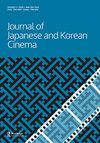Memories of the demos and popular Korean moving image narrative
引用次数: 1
Abstract
ABSTRACT This paper will discuss how recent popular cinema reflects upon the democratization process in South Korea since the 1980s. Films and television dramas depict the trials and travails of pro-democratic activists and the exercise of violent oppression by authoritarian dictatorship. In their appeal to the audience sentiment, popular Korean moving image narrative about democratization work within the affective and ethical constraints set out by the melodramatic mode in their mobilization of concepts of outrage, sympathy, and justice. The paper develops the term ‘affective interlude’ to highlight the aesthetics of these narratives. This paper attempts to show how melodrama’s domestication of grievance provides the exceptional conditions for the formation of authoritarian sovereign power. While popular film and dramas about democratization in Korea reiterate the sovereignty of the people and the narrative of resistance concomitant with it, they also insist on the relationship between emotion and memory as well as the importance of critique for the continued maintenance of the demos.记忆的演示和流行的韩国动态影像叙事
本文将讨论自20世纪80年代以来,最近的流行电影如何反映韩国的民主化进程。电影和电视剧描绘了亲民主活动人士的考验和痛苦,以及专制独裁政权的暴力压迫。在吸引观众情绪的过程中,流行的韩国运动影像叙事在情感和道德约束下工作,这些约束是由情节剧模式设定的,它们动员了愤怒、同情和正义的概念。本文提出了“情感插曲”一词来强调这些叙事的美学。本文试图说明情节剧对冤屈的驯化如何为专制主权的形成提供了特殊的条件。韩国流行的民主化电影和电视剧在重申国民的主权和与之相伴随的抵抗叙事的同时,也强调了情感与记忆的关系以及批判对国民持续维持的重要性。
本文章由计算机程序翻译,如有差异,请以英文原文为准。
求助全文
约1分钟内获得全文
求助全文
来源期刊

Journal of Japanese and Korean Cinema
Arts and Humanities-Visual Arts and Performing Arts
CiteScore
0.60
自引率
0.00%
发文量
16
期刊介绍:
Journal of Japanese and Korean Cinema is a fully refereed forum for the dissemination of scholarly work devoted to the cinemas of Japan and Korea and the interactions and relations between them. The increasingly transnational status of Japanese and Korean cinema underlines the need to deepen our understanding of this ever more globalized film-making region. Journal of Japanese and Korean Cinema is a peer-reviewed journal. The peer review process is double blind. Detailed Instructions for Authors can be found here.
 求助内容:
求助内容: 应助结果提醒方式:
应助结果提醒方式:


